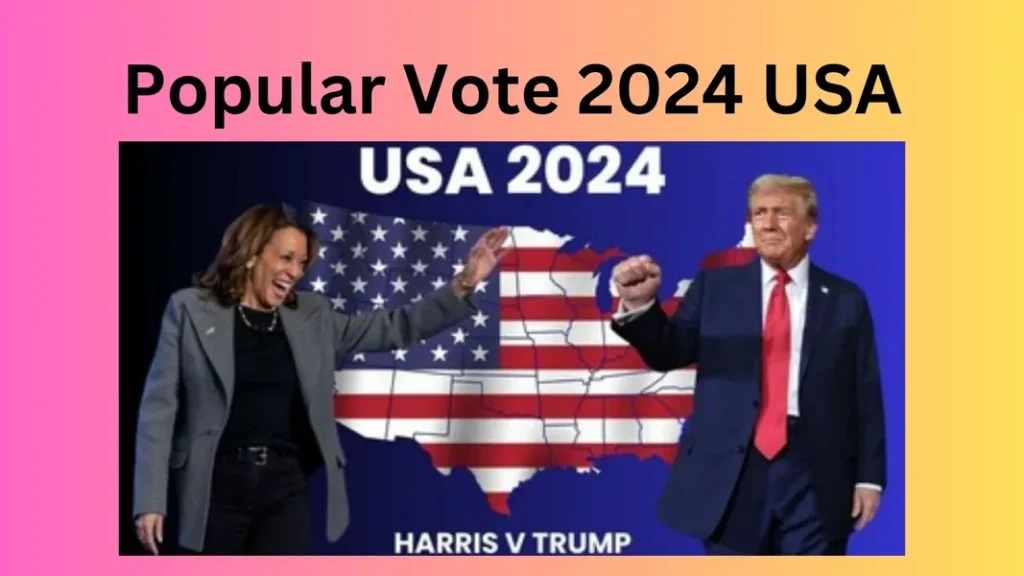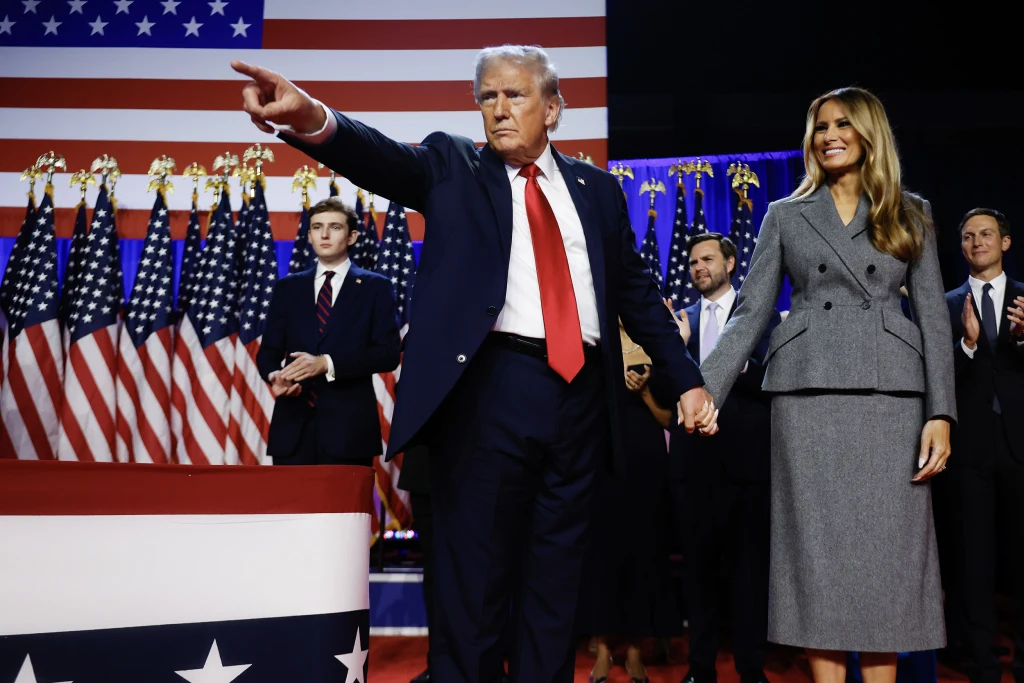The 2024 U.S. presidential election is just around the corner, and there’s one question on everyone’s mind: who will win the popular vote? It’s a question that sparks interest, confusion, and even debates across the country. The popular vote—the total number of votes cast by citizens—plays a significant role in shaping the outcome of the election, but it’s not as straightforward as it seems. So, let’s take a deep dive into what the popular vote is, how it works, and how it might influence the 2024 election results.

What is the Popular Vote?
Simply put, the popular vote is the total number of votes cast by eligible voters in an election. In the U.S. presidential election, this refers to the votes cast by citizens for one of the candidates. These votes are counted by each state, and while they are important, they do not directly decide the winner of the election. Instead, the Electoral College, a system where each state has a certain number of electors, ultimately determines who becomes the next president.
While the Electoral College grabs most of the spotlight, the popular vote provides a clear picture of how many people support each candidate. A candidate winning the popular vote doesn’t always guarantee victory in the Electoral College—a crucial detail that often confuses voters.
Why Does the Popular Vote Matter?
You might be wondering, if the Electoral College decides the election, why does the popular vote even matter? Great question! While the popular vote doesn’t directly impact the final outcome, it has significant consequences.
- It Reflects Public Opinion: The popular vote provides a snapshot of who the public supports. It’s a direct measure of how many people want a particular candidate to win.
- It Shapes Campaign Strategy: Candidates often focus their campaigns on key swing states based on where they believe they can secure the most votes. A strong performance in the popular vote can help build momentum.
- It Impacts Legitimacy: Winning the popular vote can lend a sense of legitimacy to a candidate, even if they don’t win the Electoral College. After all, it’s the people’s choice, right?
- Influences Future Elections: A popular vote win can help increase a candidate’s visibility for future elections. It can signal strong public support and possibly set the stage for another run for office down the road.
What Happens if the Popular Vote and Electoral College Don’t Match?
You may have heard of elections where the winner of the popular vote didn’t end up in the Oval Office. Sounds strange, right? It’s happened before, most recently in 2000 and 2016. In these cases, the Electoral College determined the winner, despite another candidate receiving more votes nationwide.
For instance, in 2016, Hillary Clinton won the popular vote by nearly 3 million votes, but Donald Trump won the Electoral College and thus became president. This has sparked debates about whether the Electoral College system should be reformed or abolished. But for now, it remains a fundamental part of U.S. elections.
Who Are the Leading Candidates in the 2024 Popular Vote Race?
Now that you understand the basics, let’s take a look at the major candidates vying for the popular vote in the 2024 U.S. presidential election. As of now, the race is heating up, and the political landscape is constantly changing.
1. Joe Biden (Democratic Party)
As the incumbent president, Joe Biden is seeking a second term in office. His administration’s handling of issues like the COVID-19 pandemic, inflation, and international relations will play a big role in how voters perceive him. Many voters may be looking at Biden’s performance over the past four years and asking themselves: has he done enough to warrant another term?
2. Donald Trump (Republican Party)
Donald Trump, the former president, is once again running for office in 2024. His fiery rhetoric, strong base of support, and policies have made him a major contender in the race. Trump’s popularity among certain groups remains high, and he’s made it clear that he’s ready to challenge Biden for the presidency once again.
3. Third-Party Candidates
In addition to the two major party candidates, third-party candidates often make a splash in the popular vote race. These candidates, while less likely to win, can influence the overall results. They might sway votes from one party or another, depending on their platform and appeal. As of now, third-party candidates like Jill Stein (Green Party) and Gary Johnson (Libertarian Party) might make their presence felt in the 2024 election.
How Will Key Issues Affect the Popular Vote in 2024?
As we approach Election Day, several key issues are likely to influence how Americans cast their votes. Let’s look at some of the most pressing concerns for voters in 2024.
1. The Economy
The state of the economy is often a top concern for voters. If inflation remains high, unemployment rates fluctuate, or there are concerns about a potential recession, it could sway voters toward the opposition party. People tend to vote based on their economic well-being, so both Biden and Trump will need to address economic issues to win over voters.
2. Healthcare
Healthcare continues to be a hot-button issue in U.S. politics. Whether it’s affordable insurance, prescription drug prices, or the future of the Affordable Care Act, voters are keenly interested in how their healthcare needs will be met. Candidates who present viable healthcare solutions will likely resonate with a large portion of the electorate.
3. Social Justice and Civil Rights
Issues related to social justice, including racial inequality, LGBTQ+ rights, and women’s reproductive rights, are central to many voters. How each candidate handles these issues could have a significant impact on their appeal, especially among younger voters who tend to prioritize these concerns.
4. Climate Change
With more natural disasters, wildfires, and rising temperatures, climate change has become an urgent issue for many Americans. The 2024 election could be a pivotal moment for voters who want to see more action on climate policies. Biden’s environmental agenda is likely to be a key talking point, but how Trump and other candidates approach the issue could impact the popular vote.
5. Foreign Policy
How candidates approach foreign policy—especially issues with countries like China, Russia, and the Middle East—can influence voters. If there are international conflicts or security concerns, voters might weigh the candidates’ ability to handle these crises when casting their ballots.
Swing States and the Popular Vote
While the popular vote measures the total votes cast nationwide, certain states are known as swing states—those where both parties have strong support, making the outcome uncertain. These states will play a crucial role in the popular vote and in determining the next president. Some of the key swing states to watch in 2024 include:
- Florida
- Pennsylvania
- Michigan
- Arizona
- Wisconsin
Candidates will likely focus their campaigns on these battlegrounds, hoping to win enough votes to secure victory. A strong performance in these states could lead to a significant boost in the popular vote for one candidate.

How Does Voter Turnout Impact the Popular Vote?
Voter turnout is another crucial factor. If more people show up to vote, the popular vote tally will be higher, and the winner may have a more significant mandate. Encouraging voter participation, especially among younger and minority groups, is a key strategy for both parties in 2024.
What Are the Predictions for the 2024 Popular Vote?
It’s still too early to make solid predictions about who will win the popular vote in 2024. Polls can be useful, but they’re not always accurate, especially when factoring in the unpredictable nature of elections. As the campaign progresses and the candidates’ strategies unfold, we’ll have a better sense of who’s leading in the popular vote.
Conclusion
The popular vote in the 2024 U.S. presidential election will undoubtedly play a critical role in shaping the future of the country. While it doesn’t directly determine the winner, it reflects the will of the people and serves as an important measure of a candidate’s support. The election will likely come down to key issues like the economy, healthcare, social justice, and climate change, as well as the impact of swing states and voter turnout.
While we can’t predict the outcome just yet, one thing is clear: 2024 will be a pivotal year in U.S. politics, and the popular vote will be a key part of that journey.
FAQs
1. What is the popular vote in U.S. elections?
The popular vote refers to the total number of votes cast by citizens for a presidential candidate. It doesn’t directly decide the winner of the election; the Electoral College does.
2. Why does the popular vote matter if the Electoral College decides the election?
The popular vote is important because it reflects the preferences of the public. It can influence campaign strategies and gives legitimacy to the winner.
3. Can a candidate win the popular vote but lose the election?
Yes, this has happened in past elections, most recently in 2016, when Hillary Clinton won the popular vote but Donald Trump won the Electoral College.
4. What are swing states, and why are they important for the popular vote?
Swing states are states where both major parties have strong support, making the outcome uncertain. They are crucial in determining the overall winner of the election.
5. How does voter turnout affect the popular vote?
Higher voter turnout generally results in a higher number of votes cast, which can change the outcome of the popular vote and possibly influence the overall election result.